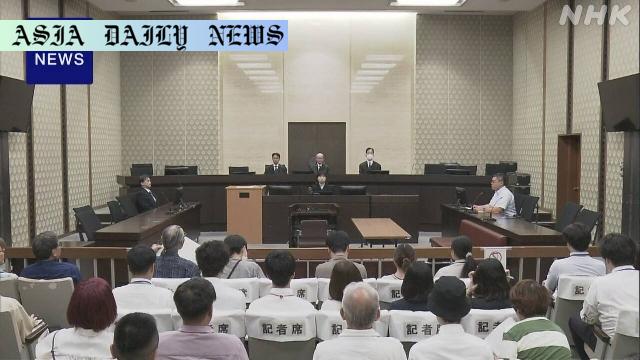Kishida: Osaka High Court to rule on appeal in explosive case involving ex-PM Kishida this September.
Osaka High Court to rule on attempted explosive attack appeal on September 25.
Defendant Kimura Ryuji faces 10 years in prison; appealed February’s Wakayama ruling.
The explosive attack occurred during Prime Minister Kishida’s 2023 election campaign visit in Wakayama.

Background of the Incident
The Osaka High Court recently concluded a hearing in the appeal case concerning Kimura Ryuji, a 26-year-old who was convicted of attempting to assassinate then-Prime Minister Kishida Fumio. In April 2023, during an election campaign visit to Wakayama City, Kimura hurled a handmade explosive device at Kishida. Although the attack fortunately did not result in serious harm, two individuals were injured. The Wakayama District Court sentenced Kimura to a 10-year prison term earlier this year in February, a decision that was appealed by the defense.
Arguments from Defense and Prosecution
Kimura’s defense team argued during the appeal hearing that their client did not have the intention of causing physical harm. They emphasized that his actions may have lacked premeditation to physically harm anyone directly. Despite this claim, prosecutors maintained their stance, urging the Osaka High Court to dismiss the appeal. They pointed to the serious repercussions of Kimura’s actions, which endangered not only the Prime Minister but also the general public, making this a significant incident for security in Japan. Witness testimonies and evidence from the crime scene are expected to play a crucial role in the court’s decision.
Upcoming Judgment on September 25
The Osaka High Court will announce its judgment on Kimura’s appeal on September 25. This ruling is deemed significant as it touches on questions about political security, public trust, and judicial perceptions of criminal intent. Were Kimura’s appeal to succeed, it could lead to broader discussions on Japan’s legal criteria for criminal intent and sentencing severity.
Repercussions for National Security
This case has broader implications for Japan’s national security measures. Attacks on political leaders are rare in Japan, but this incident, along with the assassination of former Prime Minister Abe Shinzo in 2022, raises concerns about the adequacy of protective systems in place. The judgment will likely influence future court decisions and policies surrounding the safety of public officials during campaigning and public appearances.
Conclusion
The case underscores how acts of violence, no matter the intent, can undermine political stability and trust. The upcoming decision by the Osaka High Court is not only about determining guilt but also about setting legal precedents for the nation. Regardless of the ruling, this case will likely remain a pivotal moment in Japan’s judicial and political discourse.
Commentary
Significance of the Hearing
The Osaka High Court’s ruling is not just about holding an individual accountable but also about what this signifies for Japan’s justice system and its approach to political crimes. The incident involving Kimura Ryuji highlights gaps in maintaining the security of leaders and the complex psychological dynamics tied to such violent acts. For many, Prime Minister Kishida’s survival was a matter of luck, but it could have ended much differently, with grave consequences for Japan politically and publicly.
Balancing Justice and Security
This case serves as a grim reminder of the recent assassination of former Prime Minister Abe Shinzo in 2022, which left the country shaken. The attack on ex-PM Kishida adds weight to Japan’s growing responsibility to strengthen both its legal and security systems. Judicial sentencing must consider not only prosecuting harmful acts but also deterring future attempts that could breach public trust and destabilize political culture. The defense’s claim about the lack of harmful intent creates room for debate on balancing leniency with preventive measures.
Ensuring Political Integrity
This judgment will set a tone for how Japan handles political attacks within its legal framework. Such events can have far-reaching consequences beyond the immediate context, affecting public trust in governance, political stability, and how leaders conduct campaigns. Japan’s judicial sector has a delicate role to play: ensuring justice is served while safeguarding democratic principles and sentiments.


